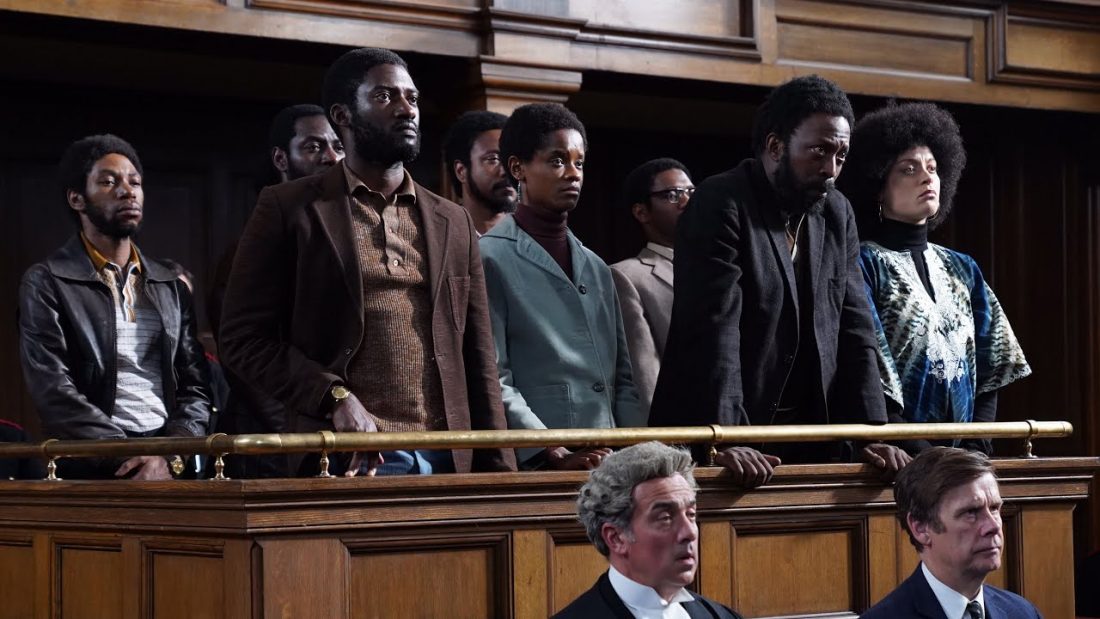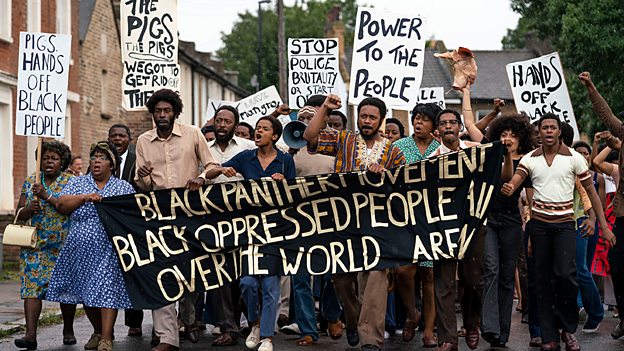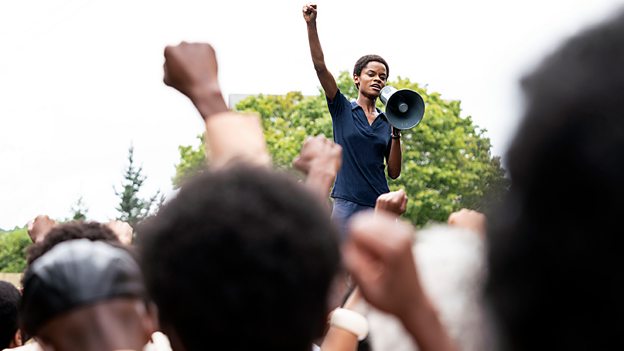How a group of nine West Indian men and women successfully defended themselves against racist police in 1970 after relentless harassment in Notting Hill’s Mangrove restaurant is a film that everyone needs to watch.

To view Steve McQueen’s Mangrove is to take a cold, hard look at the flagrant racism and bigotry experienced by 60s and 70s Black Londoners, but there is also a pride in how nine men and women literally took a stand to successfully take on the British judicial establishment in the landmark Mangrove Nine case.
The actions of the Mangrove Nine is sadly not known as widely as it should be, particularly now, when institutional racism and bias remains and the activism of the last few months around Black Lives Matter across the globe is so topical. The story of the heroes of the Mangrove Nine marked a significant juncture in British race relations history that led to a successful win at the Old Bailey (the highest court in the land). This is the foundation of every race relations fight that has come after.
Meaningfully, the director recently dedicated Mangrove, along with Lovers Rock to George Floyd and all the other Black people murdered, seen or unseen, because of who they are.

Steve McQueen’s Mangrove tells the true story of how West Indian restaurant owner Frank Crichlow, played by Shaun Parkes, created a much-needed lively community haven in London’s Notting Hill, attracting locals, activists, intellectuals and artists. The popular hangout was reportedly attended by the likes of Nina Simone, Vanessa Redgrave, Diana Ross and Jimi Hendrix. Even Bob Marley is known to have played football nearby and would come to the Mangrove café afterwards to eat delicious West Indian fare such as stewed chicken with rice and peas prepared by Aunt Betty, played authentically in the film by the wonderful Llewella Gideon.
Watching this film, in spite of how we seem to be fighting the same old fight when it comes to racism, it was eye-opening to see how even more unequal and biased the system was only 50 years ago.
Shaun’s portrayal of Crichlow was mesmerizing and brooding, conveying the reluctant hero restaurant owner who wanted nothing more than to have his café be a success but due to the harassment and bullying by the police, was forced to lead the community. We get to see the man behind the legend as we watched his frustrated anger at the treatment by the police and the playful banter with Aunt Betty the cook.
Malachi Kirby played the late Trinidadian-born activist and journalist Darcus Howe with a humanity and realism that we don’t often associate with the icon in scenes alongside his partner Barbara Beese (Rochenda Sandall).
Letitia Wright’s depiction of Altheia Jones-LeCointe, the Trinidadian physician and research scientist and British Black Panther leader was powerfully resolute and uncompromising in her conviction that enough was enough and that the community needed to take a stand against the police brutality.

Image credit: BBC
Kudos to the production team who painstakingly recreated the wide, sweeping sets of Notting Hill before its gentrification along with the set designers and wardrobe team, all of which takes viewers back to London in 1970.
Watching this film, in spite of how we seem to be fighting the same old fight when it comes to racism, it was eye-opening to see how even more unequal and biased the system was only 50 years ago. A system that did not take into consideration the rights of the Black individual. The odds were against the nine, but they showed spirit and fought. Their victory in that court case inspired a generation and future generations really need to know the story of the Mangrove Nine.
Mangrove is part of the Small Axe anthology series, by Academy Award, BAFTA, and Golden Globe-winning filmmaker Steve McQueen. It will screen on BBC1 in November 2020.












